PART ONE: ME
I was born in 1991. Fed with chicken fingers and mac n’ cheese. Nurtured with 90’s rock. Indoctrinated with Star Wars. This is my story.
I grew up in Florida, with my mom. My dad lived in Georgia, and I got to spend roughly two weekends a month with him. These weekends normally consisted of Smashing Pumpkins, building Hot Wheels rollercoaster tracks that stretched the bedroom, and NBA Jam on Sega Genesis.
Oh, and another thing. Card games. Always. For my dad, this meant SWCCG from 1995 on. The greatest game I never played, I grew up watching my dad battle with his buddies and card shop dudes at our kitchen table random weekend evenings until it was time for bed. I was too young to play, and Star Wars was a little too complicated, but I got random commons to take to school and show my friends, who didn’t care because “that’s not POKEMON”. I was nerdy, I was good in school, and I was quiet. While the teacher was explaining things I was building decks in my head with cards I couldn’t afford on my $5/week allowance. My escape was the two weekends a month where I could go to my dad’s and play cards with him and his friends in their 30’s. My friends in their 30’s.
I grew up a little. Decipher released Young Jedi in 1999 (a simplified SWCCG for kids), and unwittingly released a demon upon the world. Too short to sit in the chair and see the table at the ripe old age of 8, I did battle standing up, winning the State Championships and qualifying for World’s in, you guessed it, Virginia Beach, Virginia. I did okay. In 2001, Decipher ended Young Jedi and started Lord of the Rings TCG, and I did well in that game too. Card games were like a puzzle, my biggest obstacle was my meager collection. I won with Moria (Mono Red) while everyone else played Nazgul (Abzan).
My mom moved to Georgia so I could be closer to my dad, but business took my dad to North Carolina. I wasn’t the “hang out with friends on the weekend” type, the allure of the weekend was 48 hours of uninterrupted reading, legos, deckbuilding, dreaming. The kids at school didn’t care about card games, and it frustrated me. Didn’t they see it was everything? I discovered the Internet, and card image galleries. I was in heaven. When I couldn’t see my dad, my mom would take me to the local card shop on Saturday mornings, get me Taco Bell, and leave me all day to play cards. I was 9. I played in tournaments, ponied up my allowance for entry, grinding away for a couple packs, such riches I could hardly comprehend. The local crew were mainly guys in their late 20’s and early 30’s. I heard a lot of bad language. A lot of “I just got beat by a kid.” A lot of “I wish I did good in school.” A lot of “I wish I didn’t drink in college.” Decipher introduced set rotation. Block Three was coming out, I had just started buying Block Two. Block One (my whole collection) was worthless. I quit cards. Maybe in high school, when I had a job, I’d start up again.
High school started. I got a job to afford a car, and then a second job to repair the car. My dad was playing this new game, Magic, but I wasn’t interested. That game had been around forever, and if it wasn’t interesting in 2001 it wouldn’t be interesting in 2008. I made some friends, lost some friends. Kids were drinking, I wasn’t interested. Remember all those guys in their 30’s I knew growing up? They all regretted drinking, and they were the smart ones that I looked up to, like my dad. Why start if you’re just going to regret it when you’re older? I hated school and couldn’t wait to get out. My dad got me to try Magic, it was cool, but not as complex or strategic as LOTR (I thought).
I got out, got into an associate’s program at a community college. I don’t know when it hit me. I saw Pro Tour coverage I think, might have read some deckbuilding article. There was an intricacy, an art to Magic that I had never seen before. That feeling, of a puzzle that my brain could solve, the challenge of being presented with the same pieces as everyone else, yet I was the one to solve it first, it took over me. Grand Prix Pittsburgh 2011 was my first big event. I tried equipping a Sword to my Phantasmal Image. I got crushed.
I kept playing, I got better. I met a girl, we got engaged. I had a friend that owned a store, I went to Grand Prix Vegas as a trader/buyer to pay for our wedding. Things didn’t work out. Magic didn’t seem so important anymore. I sold my cards and forgot about Magic. I met another girl. I think she could be the one, but that’s a scary thought, I’d rather just cast Counterspell and not think about it. I moved closer to school, five minutes from the local cardshop I used to play at, but I didn’t go. Not until one day, when I was at home doing nothing, and my dad begged me to come to PBKW, they had 7 for a PPTQ and needed one more to make it sanctioned. I didn’t want to play, I didn’t like the highs and lows that come from being emotionally invested in a game. I went anyways, got handed a deck with Satyr Hoplite in it. Guess we’re playing. I won. Guess we’ll play the rPTQ too.
PART 2: REPORT
Heading into the rPTQ’s, a clear hierarchy of decks had been established as a result of GP Krakow and SCG Providence, with Esper Dragons on top, Abzan Aggro and Mono Red slightly below, and everything else clearly second tier. Despite vast differences in the makeup of the two Top 8’s, I knew going into the PTQ’s that Esper Dragons was the deck to beat, and Mono Red was the “supposed” deck to beat it. Almost every Standard article from Pro and semi-Pro Magic players after the Pro Tour contained either advice on how to play Esper or how to beat it in their taglines. Based on an apparent lack of video evidence to the contrary, I believed Esper to have a bad Red matchup, and indeed, I could find no on-camera match or recorded video showing Esper winning a game against Red. Clearly, if Esper was a deck I planned on playing, I needed to have a plan for the Red matchup.
Looking on the bright side however, it appeared that the Esper Control vs. Abzan Control matchup was about as lopsided as the Esper vs. Red matchup, but this time things were in our favor. In comparison to our universal answers, resilient threats and powerful trumps in the form of card draw, Abzan just looked like a clunky deck jammed with fatties and removal that did nothing against our creatures. The games played out as expected, Esper would counter something, kill something else, drop a Dragon, refill with a Dig and Abzan would just die.
Armed with this knowledge, I began the process of testing Esper and tried to find a list I liked enough to start with before I eventually tweaked it and made it my own. Many players deplore this practice; they insist that the best path to victory is adopting a tested list, preferably from some Pro that knows what they’re talking about, (bonus points if it comes with a sideboard guide), and just roll with it. This approach has merit, and I have done it myself in the past when I was either unfamiliar with the format or was unable to devote adequate time to testing. For this event I had no excuse, I bit the bullet early, bought some overpriced Dragonlord Ojutai’s, and went to work.
During testing I found that Esper was capable of insanely strong wins. When it wins, it wins big. The Ojutai train is hard to stop once it gets rolling, and as a result most games are won or lost leading up to turns 5-6. For the most part, game and match losses were clearly attributed to an early stumble, of which there can be many flavors. Drawing blue lands and the black half of your deck, drawing all Scorns and no Dragons, drawing multiple large drops and Digs and getting run over, I saw it all. Anyone with some experience with this deck can back me up, Esper Dragons has some of the worst opening hands for a control deck I have ever seen.
As is apparent to almost everyone by now, however, Esper more than makes up for this clunkiness with an overall card quality that is off the charts. Dragonlord Ojutai, Silumgar’s Scorn, Dig Through Time and Foul-Tongue Invocation are the backbone of the deck, and are pretty much just more powerful than what everybody else is doing in the format. While this may seem like old news to everyone, for my individual testing process I find it extremely valuable to reduce a deck to its essence to discover why it works. This helps not only on a compositional basis during deck construction, but also in-game and with sideboarding. Especially in a deck with card selection elements, having an understanding of not only which cards are powerful, but WHY is essential to victory.
After streaming with an initial version of the deck for a few days, I learned a lot of details and knew it needed some work. For ease of reading, I’ve put them in bullet form:
- Splashing white cards is unnecessary. Ojutai is enough, I understand the draw to playing Narset or Utter End, but in the long run these decisions are incorrect, at least in the rPTQ metagame I prepared for. I could write a whole article on this (and I probably will), but briefly: we are not lacking in power level, making concessions to the splash in our manabase only hurts our consistency, and the games that we lose come down to consistency issues usually anyways. I refuse to sacrifice consistency for power when consistency is already an issue and power is not.
- Dragonlord’s Opportunity is not a maindeck card: I only ever want this card against decks with counterspells and decks with Thoughtseize. In the current format, this is Abzan Control and the mirror. We are crushing Abzan to the point where we’re pushing it out of the metagame, and Game 1’s against Control fight on an axis other than counter-wars over Dig’s. If I’m playing this, it’s in my sideboard.
- Our deck is weak to edict effects. Merciless Executioner is hot tech, any opposing deck with access to black can bring their own Foul-Tongues or Self-Inflicted Wounds. If I’m running into Abzan in the later rounds, these are cards that I should possibly be prepared to face.
- Mono-Red can’t be beat without a dedicated plan. I don’t care if we’re slightly favored after board. If we are 80% to lose game 1, and 60% to win two and three, we’re still losing the match a majority of the time. Drown in Sorrow is necessary, Virulent Plague is amazing. Someone said it somewhere, it turns our Foul-Tongues from 6’s into perfect 10’s.
- Sideboard slots should have applications in multiple matchups. Dedicating 10 cards to not forfeit the Mono-Red matchup, while having a plan for the mirror, while also having SOMETHING to keep up with midrange after board will be impossible to pack into 15 cards unless we can find cards that come in against multiple opponents. Sideboard space is already limited as we have to replace narrow removal spells in our maindeck against specific opponents.
- The mirror is difficult, and I am not the best player. Sure, PVDDR can take a stock list and beat me over the face with it, but without crazy play skill or tremendous experience I have to gain an edge some way. Risen Executioner seems strong, but fails the previous point.
- Ashiok, Nightmare Weaver is great against everyone not Mono-Red. In a land of midrangey Dragons, Ashiok is Queen. One maindeck copy allows us some extra points in mirror game 1’s, and is an all-around good card against the field. If we’re stumbling, she can come down and buy us some time to draw out of our stumble. Or, she can just do her thing and take over the game starting on turn 3.
- Stratus Dancer is Stratus Dancer. She deserves her own section.
Who am I kidding, I can’t wait. Stratus Dancer, at least for me, is such a perfect fit for the deck, and I’ll try to outline why as best as I can.
- Edict insurance: a morph that can come down before Dragons, Dancer can serve as a totem armor for our Ojutai when our opponent tries to “get us” with their spicy edicts.
- Great mirror-breaker that supports our plan A: Dancer does so much for the mirror. The classic draw-go “who blinks first” game is blown wide open when we drop an early dancer. Many control opponents board out some number of Downfalls, keeping at most 5 removal spells for creatures after board. A morph presents a real clock, and we are just looking to flip her up at the earliest opportunity and generate a two-for-one and start swinging for three anyways. The absolute worst case scenario for us is Dancer getting countered, at which point it was merely a 1-for-1 that reduced the number of answers our opponent has for our Dragons. In combination with Ashiok, we have 5 early drops that punish our opponent for going tapland into tapland to start the game.
- Serves as Foul-Tongue 5-7 against Mono Red. Oftentimes games against red go like this: 1 drop, 2 drop, three drop or some other creature, burn. We normally try and respond with: two drop removal, foul-tongue gaining a little life, Ojutai to wall a creature, hope they can’t burn us out. If we survive to this point of the game, all we’re really looking for is more ways to gain life and counter burn, while we try and turn the corner and kill Red quickly before they can draw enough burn to finish us off. Stratus Dancer is such a great turn 6 play after we’ve blunted the initial assault. With a Dancer on the field we’ve essentially gained 3-4 life, and Dancer can actually be BETTER than Foul-Tongue on some boards where we have an Ojutai or Silumgar out as well. At that point, we don’t really need to kill a creature, as Silumgar is essentially acting as removal since they can never get rid of him. We’re just looking to get our opponent dead without dying ourselves. Just think about that for a second. Stratus Dancer can literally be better than the best card in our deck at some points. Not to mention just running it out on Turn 2 to block a Zurgo. If our opponent takes a turn off to kill it, that’s even worse for them, as we just turned our Dancer into a Silumgar’s Scorn.
- Essentially gives us three free sideboard slots. Dancer is an all-star against both the control mirror and Mono-Red, the two matchups I’m least excited to face.
Before getting into the match recap, I have to say that I almost audibled to Atarka Red. My reasoning was this: Esper is on everyone’s radar as the consensus “best deck”. Esper’s weakness to Mono-Red is well known. Mono-Red is cheap to build, simple to learn and not the hardest to play well (well, not perfectly). Mono-Red’s worst matchup, Abzan Control, is a dangerous choice, as it seems it can’t win against the best deck without some dramatic restructuring. I fully expected many Abzan players to audible to Red, both as it’s the cheapest option and card availability shouldn’t be too much of a problem, and it’s an overall great choice for the weekend. I was not looking forward to bringing a control deck that I was not confident with into a hostile field.
Round 1: Levi Shumate (Atarka Red)
Here we go. Round one, game one on the draw, unknown opponent. Zurgo go. I don’t remember much about this game, other than I put him on Become Immense early and never gave him an opportunity to blow me out with it. Ojutai came down on 5 and put the game away.
Game two was much of the same, my removal matched up against his threats, and Stratus Dancer allowed me to stabilize at a low life total. Percentages caught up with my opponent as he eventually started hitting his 4th and 5th land while I pulled away.
Win: 2-0 (1-0 in matches, 2-0 in games)
Round 2: Chris Yarbrough (Esper Control)
Chris is a semi-local player that I’ve run into a few times at random IQ’s and such. I haven’t played him in a couple years (as I haven’t played paper Magic in a couple years) but I was willing to bet he’d be on some form of one of the top decks, either Abzan or Esper.
Ashiok ran away with Game 1, exiling most of his threats and allowing me to not only grind him out, but also gain an information advantage by seeing most of his deck. Game two was a weird one, as a mulligan to 6 showed me Temple of Deceit, Swamp, Ashiok, triple Thoughtseize on the draw. Guess we’re doing this. Two Thoughtseizes grabbed a counterspell and a Dig (I believe) leaving him with Dragonlord Silumgar and lands, but he was able to topdeck a Thoughtseize the turn before I could play Ashiok. Sandbagging the third Thoughtseize until Turn 5 allowed me to nab his Silumgar, leaving him with nothing to my hand of three spells, but he topdecked Dragonlord’s Prerogative to make it a game. Stratus Dancer was an all-star, generating two for ones and making his Foul-Tongue’s awkward. All in all, it turned into a great game from such an interesting start.
Win: 2-0 (2-0 in matches, 4-0 in games)
Round 3: Gregg Spano (Bant Morphs)
I was a little worried going into this match. Gregg was sitting next to me the match before so I knew he was on Morphs (and he knew I was on Esper, for what it’s worth). I wasn’t sure how my deck would hold up against Den Protector/Deathmist Raptor, and I wasn’t sure what kind of hate he was packing. Clever management of Dragonlord Ojutai game 1 led to victory, as a timely Bile Blight in response to a Valorous Stance allowed me to save my Ojutai from removal and still get the free Anticipate. Dirty. I saw Mastery of the Unseen game one, which made me consider some number of Thoughtseize postboard.
Game Two was intense and some of the most difficult combat math I’ve ever had to do. I boarded in Thoughtseize as I read him as a more controlling player based on his usage of Valorous Stance in game one, and it worked for me as I saw two in my opener and was able to nab a Fleecemane Lion and a Den Protector I believe. Gregg flooded out a little early, seeing Elvish Mystics in his draw step for a few turns. Eventually I found myself taking four from an Elvish Mystic and Den Protector for a couple turns while Gregg passed with open mana, playing no spells or lands, to my awkward hand of multiple Foul-Tongue Invocations and Tasigur with no Dragon. I was content to play a waiting game, as any Dragon immediately gains me life back, while casting a three mana edict just to grab a Mystic wouldn’t get me very far. It took a lot of restraint to hold back the Tasigur, but eventually I found a Dragon which bought me time and forced Gregg into tapping low to develop his board with Deathmist Raptor. This let me play Tasigur underneath the Disdainful Stroke I put him on, and I was able to counter the Stance he had as well.
Win: 2-0 (3-0 in matches, 6-0 in games)
Round 4: Zachary Jesse (Abzan Rally the Ancestors)
Zachary was playing a very solid list, it had Den Protector/Raptor, Siege Rhinos, four of both Rally and Nyx Weaver, and threatened the combo kill with Gray Merchants. I lost game one after almost decking him with Ashiok to a desperation Rally with two cards left in his library while I had no counterspells. I probably could have won this one, I’m not sure but I imagine I countered something aggressively early when I should have saved my counters for his Rally’s.
Game Two was close, and I know I got there but I don’t remember how. Probably with Ojutai. Game Three was rough, we were going to time and I knew I could probably push for a draw but instead kept pace with my opponent as he aggro’d me out with multiple Siege Rhinos.
Loss: 1-2 (3-1 in matches, 7-2 in games)
Round 5: Clifton Sweeney (G/R Aggro)
Another local player, Clifton was playing the aggressive G/R version with Rattleclaw Mystic, Deathist Raptor and Thunderbreak Regent and was my win-and-in opponent. I don’t remember much of this match, other than Game three culminated in a race where my two Silumgar, Drifting Death triggers (from Silumgar and Ojutai swings) combined with a topdecked Bile Blight to take down a Stormbreath Dragon on defense for the win. One play of note was a desperation end of turn Dig Through Time to find a Drown in Sorrow to save me in game two. I was dead to my opponent’s next swing and needed a lot of help, as a Drown in Sorrow was necessary to wipe his board, and I was stuck with multiple clunky Digs in hand and nothing else. My Dig saw 3 lands, Bile Blight, Silumgar’s Scorn, Ojutai, Foul-Tongue, which wouldn’t save me from dying next turn. I just grabbed Ojutai and Foul-Tongue, untapped and drew…Drown in Sorrow. I dropped my fifth land, cast the Drown, wished I had Scorn in hand and passed the turn, for Clifton to tap out and kill me with Crater’s Claws to force a game three. Very frustrating, as I had the tools at my disposal to win and basically just gave up when I didn’t see the Drown in my 7 card Dig. I would have to play tighter in the finals.
Win: 2-1 (4-1 in matches, 9-3 in games)
Round 6: ID with Andrew Tedder (Mono Red)
Finals Match: Ryan Radcliffe (Atarka Red)
The warrior’s path comes full circle. Atarka Red was my kryptonite, inescapable, mocking me, threatening to destroy my feeble attempts at success. My ID put me 5th seed, I would be on the draw, in the finals, against my worst matchup. Could we possibly tempt fate again?
Game One was a textbook display of both deck’s executing their gameplan. Ryan burned me when I tapped out for removal, I played as efficiently as I possibly could. Ojutai came down, I stabilized at 5 to my opponent’s two cards in hand. I untapped and knew the coast was clear, a mainphase Foul-Tongue just to gain life, with no creature to destroy put me at 9, out of burn range while Ojutai close out the game. Solid Magic. Restrict the opponent’s outs.
Game Two I was on the draw again. With a mulligan to six. Now a mulligan to five. Two land, Ultimate Price, Dig, Bile Blight. Keep. Smelling blood, my opponent went Turn 1 guy, Turn 2 guy, guy. Turn 1 draw, Temple of Enlightenment. For my second turn I drew…Drown in Sorrow. I looked at my hand, my Swamp ready to come down untapped, my Dismal Backwater and Temple of Enlightenment in hand. I sighed, shook my head ever so slightly, looked pointedly at my lands, then at my opponent’s board. Temple of Enlightenment, scry, pass. Smelling blood, my opponent hurriedly untapped, slammed Rabblemaster. I untapped before even writing life totals, dropped my third land, Drown in Sorrow. Like a fish on a hook, I baited my opponent, capitalized on his nerves, channeled my nervous energy, controlled it and released a little, just enough to make it believable, make my opponent go for the kill. Stratus Dancer did the honors, but Drown in Sorrow was the deathblow.
Win: 2-0 (5-1 in matches, 11-3 in games)
Thanks for reading my rPTQ tournament report. This is the first tournament report I’ve ever written, mainly because this is the first paper Magic finish I’ve ever had worth writing about. If you’d like to learn more about the deck, feel free to follow me on Twitter or Twitch, where you can see this deck in action along with changes and updates.
I’d like to thank all the viewers of my stream that hung out with me, supported me, laughed at me, yelled at me, and above all else continue to be the reason why I enjoy playing Magic. Selling a paper collection, giving up fun evening nights and weekends in the name of work and school was not an easy decision, and through all of you and your support of my stream I am able to continue to sample a taste of that camaraderie and relaxation that comes from enjoying something with like-minded individuals, be it in person at the local card shop or through my webcam and out of your computer monitor. Without you guys watching me, helping me, laughing at me, I wouldn’t be here, striving to get better, accomplishing goals.
Above all else, thanks to my dad, for dragging me out to a PPTQ to make 8 so he could play, giving me Boss Sligh to win with, looking up all the registration and tourney info for me when I was too lazy to do it myself, and providing me access to his very foily Esper card pool to build my deck. But really, and most importantly, thanks for being my dad, for always being someone I looked up to, no matter how far away from each other we lived, and for taking the time to teach a nerdy little kid about the wide world of card gaming, and in doing so changed his life forever.
Vancouver here we come.
twitch.tv/Architect_Gaming
twitter.com/iceT4ever

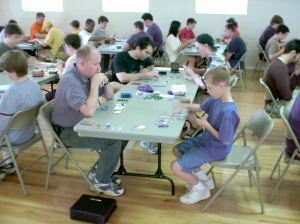
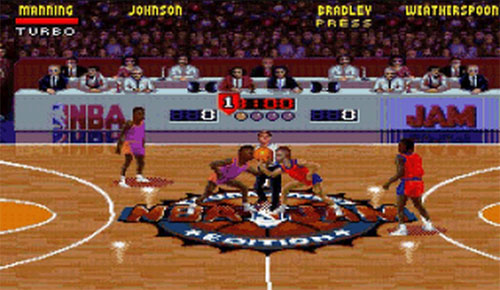
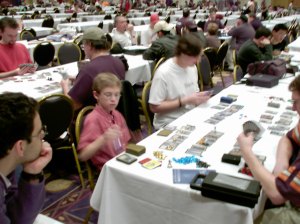
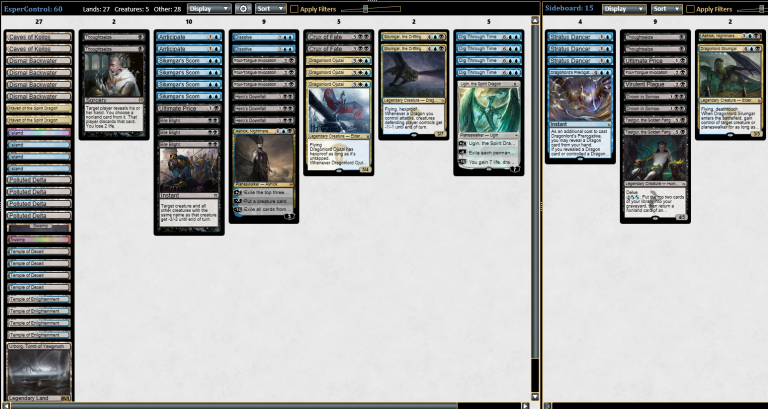
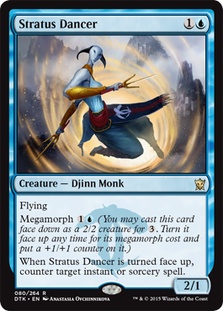
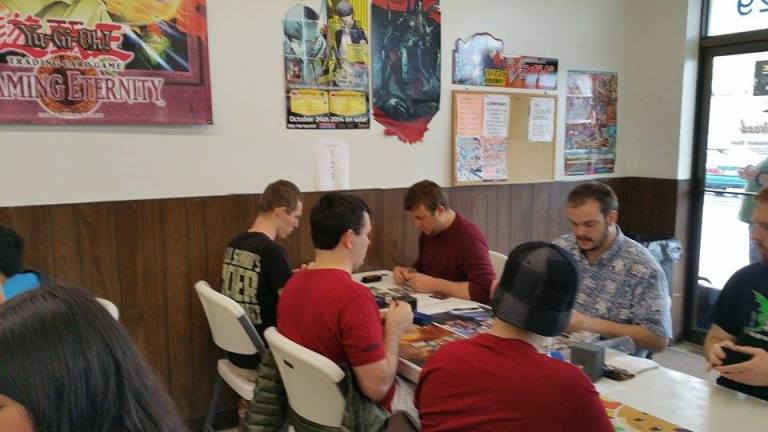
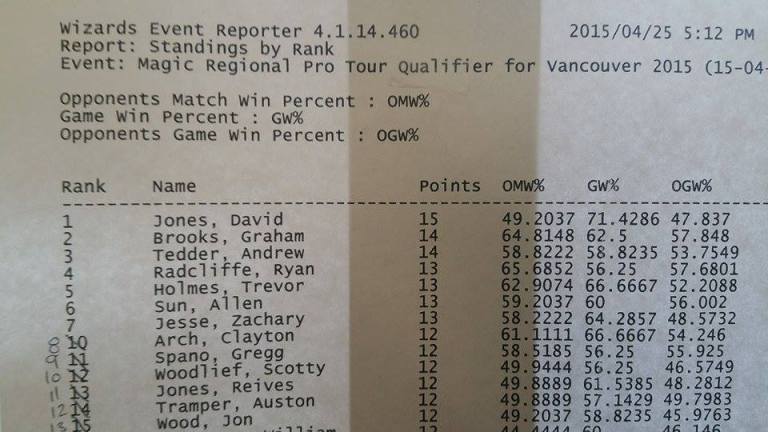
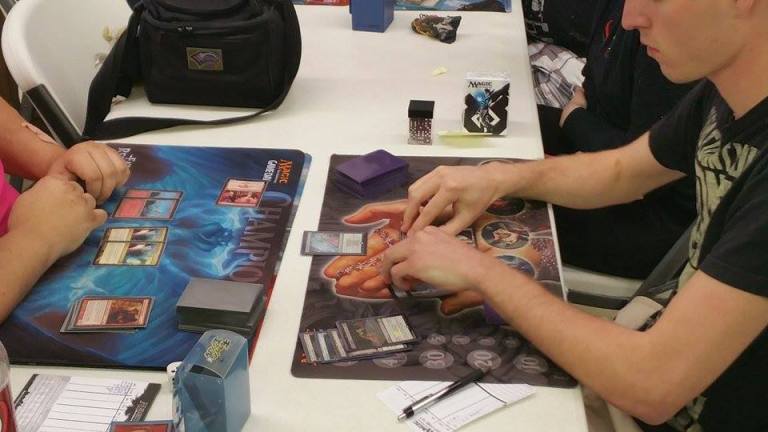
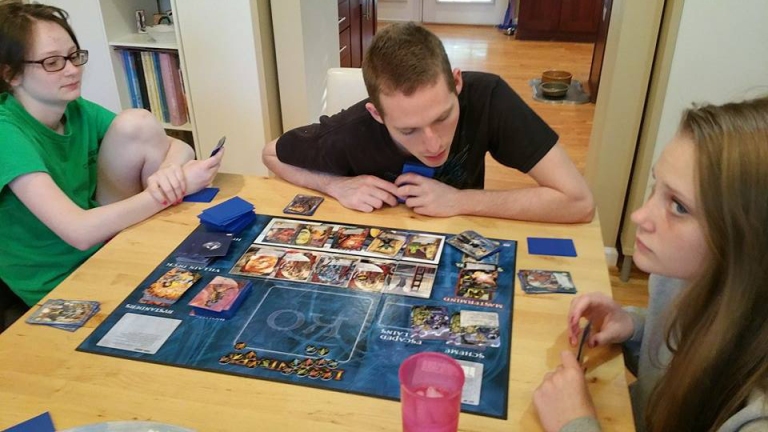
This comment is because I care ;d Also I would play 1 less bile blight, one more ashiok main
LikeLike
Ashiok is sweet, and can just win games. I’d like to try and fit more into the list. Thanks for the suggestion!
LikeLike
This was very educational as i’m piloting this deck this weekend at a pptq. Thanks for the post.
LikeLiked by 1 person
Good luck! Let me know how you did!
LikeLike
I really enjoyed the article! More than anything, you inspired me to continue playing Magic with my 12 year old son in hopes to gain some common ground that will keep us close as he grows older and gains his independence.
LikeLiked by 1 person
That’s awesome man. Growing up playing cards with my dad is one of the best memories I’ll ever have, definitely do it.
LikeLike
This was a great article. I plan to make it to the pro tour someday. And I want some help from you Arch to help me build my deck. Think you can fit me in? 😀
LikeLike
Sure thing! Practice, practice, practice, and a bit of luck can get you there. Don’t give up!
LikeLike
Really Enjoyable article mate, good luck at the pro tour.
LikeLiked by 1 person
Congratulations on your win! and really hot girls damn
LikeLike